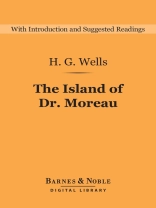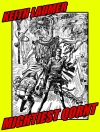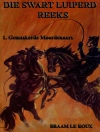This edition includes a modern introduction and a list of suggested further reading.
When first published,
The Island of Dr. Moreau (1896) shocked and horrified most of its readers and reviewers. Wells effectively employs disturbing elements to explore both the implications of evolutionary theory and to satirize modern society’s religious institutions and its pride in its ‘civilization’ – all through a story filled with suspense and adventure, capable of being read in a single page-turning sitting.
As with the other early ‘scientific romances’ that initiated Wells’ literary career,
The Island of Dr. Moreau successfully integrates serious ideas into a story driven not only by fast-paced action but also by Wells’ gift for placing the fantastic parts of the story in the realistically depicted world of his audience. Thus Wells offered the growing field of science fiction an important model as well as one of its most highly regarded examples.
Yazar hakkında
Social philosopher, utopian, novelist, and ‘father’ of science fiction and science fantasy, Herbert George Wells was born on September 21, 1866, in Bromley, Kent. His father was a poor businessman, and young Bertie’s mother had to work as a lady’s maid. Living ‘below stairs’ with his mother at an estate called Uppark, Bertie would sneak into the grand library to read Plato, Swift, and Voltaire, authors who deeply influenced his later works. He shoed literary and artistic talent in his early stories and paintings, but the family had limited means, and when he was fourteen years old, Bertie was sent as an apprentice to a dealer in cloth and dry goods, work he disliked.
He held jobs in other trades before winning a scholarship to study biology at the Normal School of Science in London. The eminent biologist T. H. Huxley, a friend and proponent of Darwin, was his teacher; about him Wells later said, ‘I believed then he was the greatest man I was ever likely to meet.’ Under Huxley’s influence, Wells learned the science that would inspire many of his creative works and cultivated the skepticism about the likelihood of human progress that would infuse his writing.
Teaching, textbook writing, and journalism occupied Wells until 1895, when he made his literary debut with the now-legendary novel The Time Machine, which was followed before the end of the century by The Island of Dr. Moreau, The Invisible Man, and The War of the Worlds, books that established him as a major writer. Fiercely critical of Victorian mores, he published voluminously, in fiction and nonfiction, on the subject of politics and social philosophy. Biological evolution does not ensure moral progress, as Wells would repeat throughout his life, during which he witnessed two world wars and the debasement of science for military and political ends.
In addition to social commentary presented in the guise of science fiction, Wells authored comic novels like Love and Mrs. Lewisham, Kipps, and The History of Mister Polly that are Dickensian in their scope and feeling, and a feminist novel, Ann Veronica. He wrote specific social commentary in The New Machiavelli, an attack on the socialist Fabian Society, which he had joined and then rejected, and literary parody (of Henry James) in Boon. He wrote textbooks of biology, and his massive The Outline of History was a major international bestseller.
By the time Wells reached middle age, he was admired around the world, and he used his fame to promote his utopian vision, warning that the future promised ‘Knowledge or extinction.’ He met with such preeminent political figures as Lenin, Roosevelt, and Stalin, and continued to publish, travel, and educate during his final years. Herbert George Wells died in London on August 13, 1946.
Author biography from the Barnes & Noble Classics edition of The War of the Worlds.












